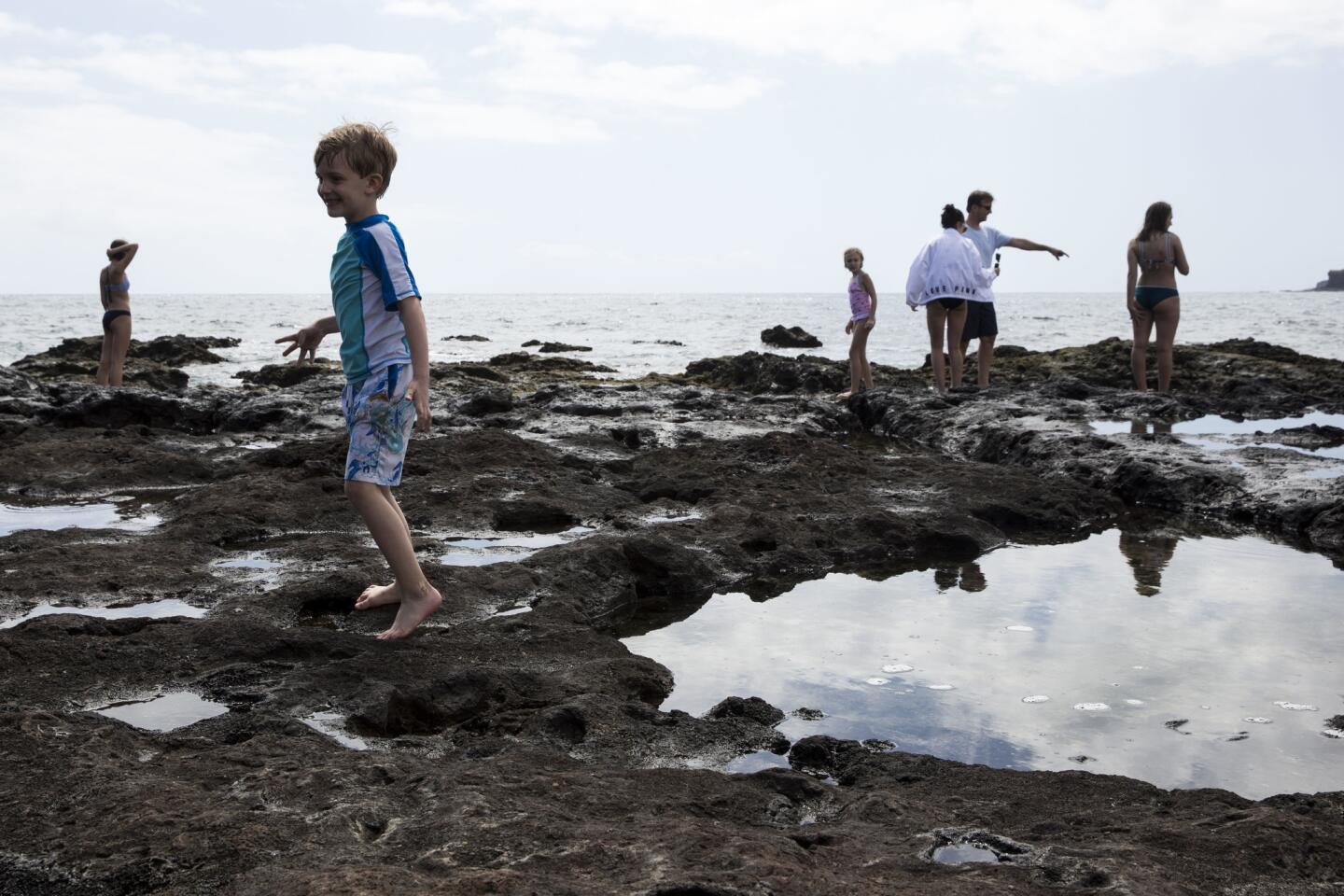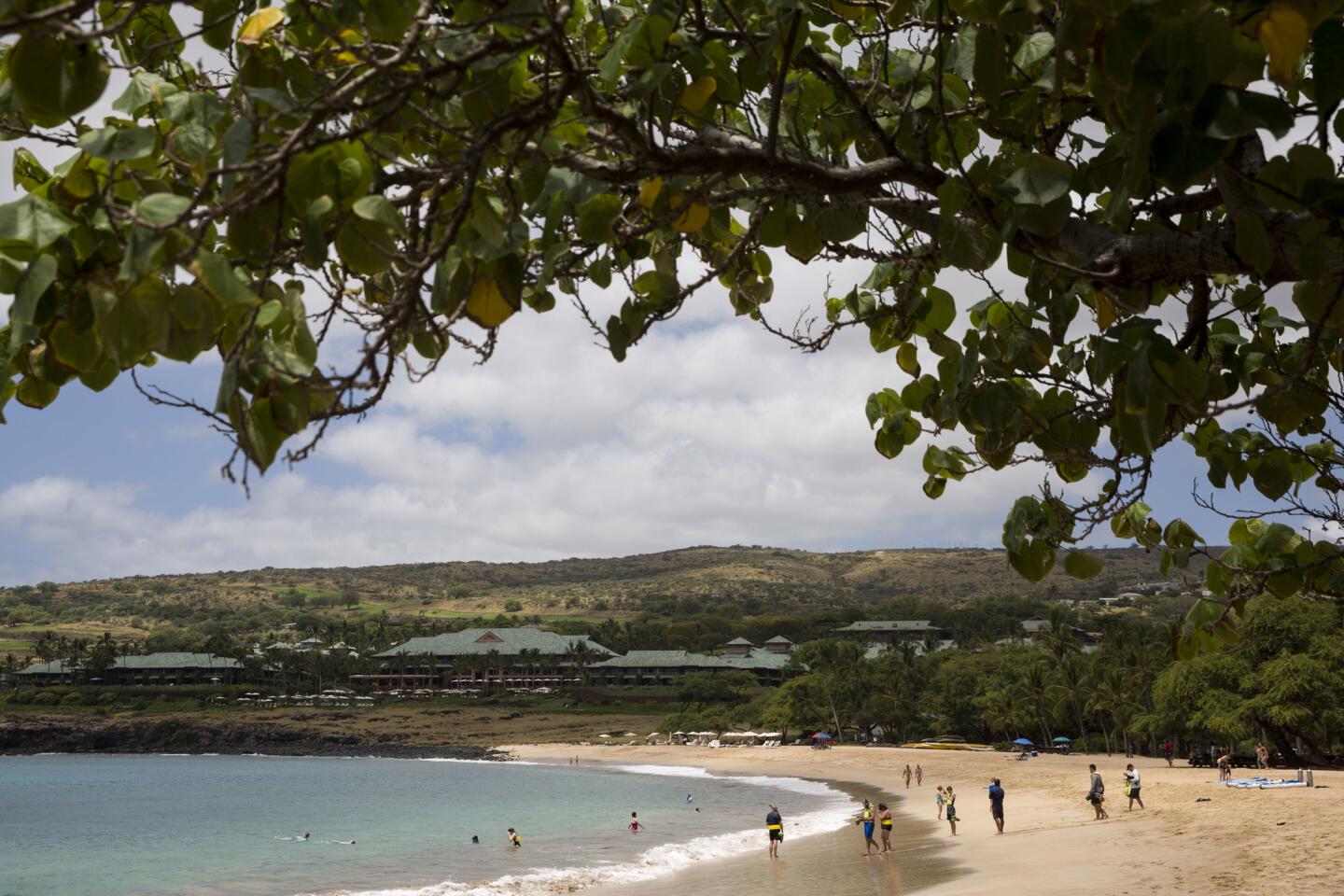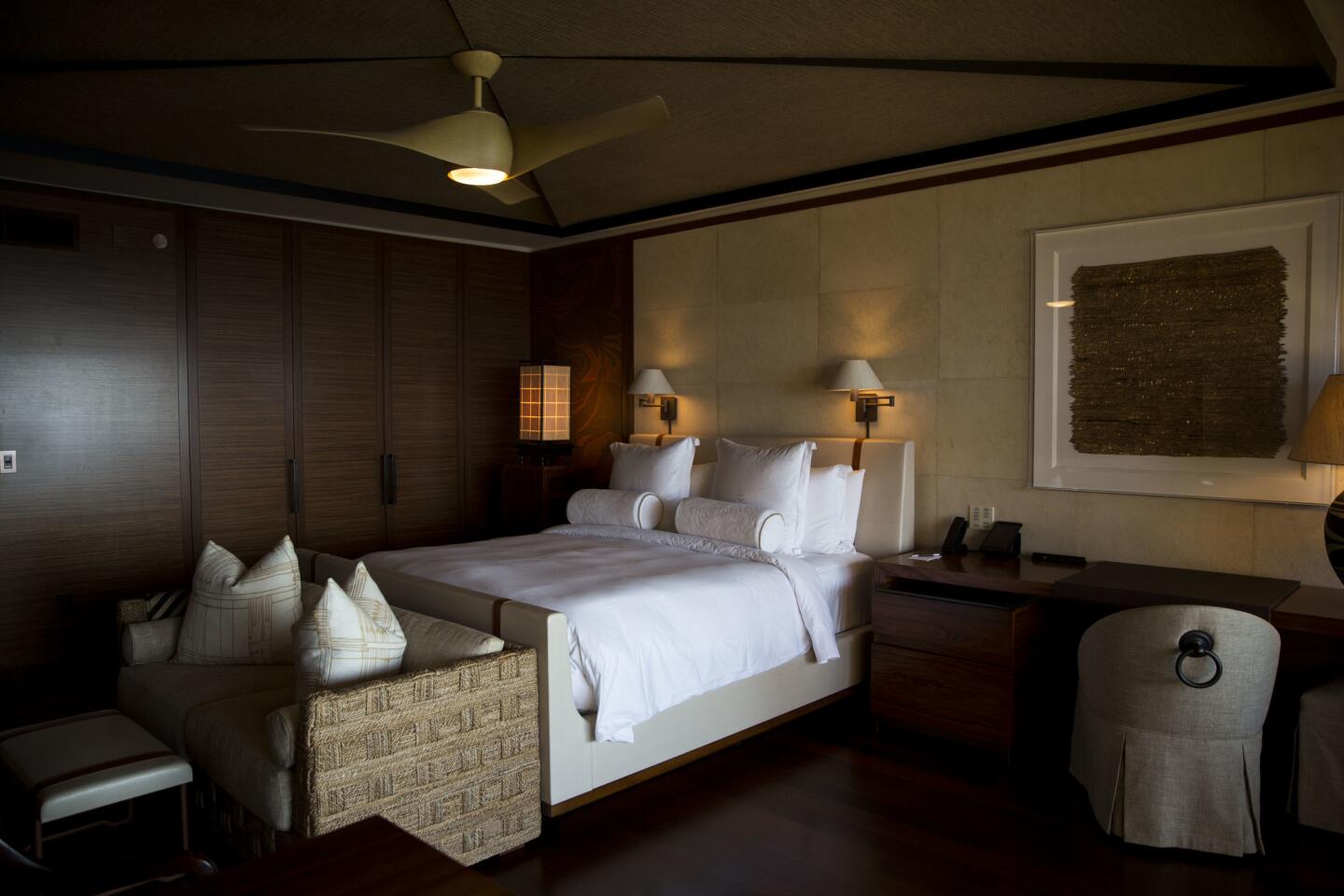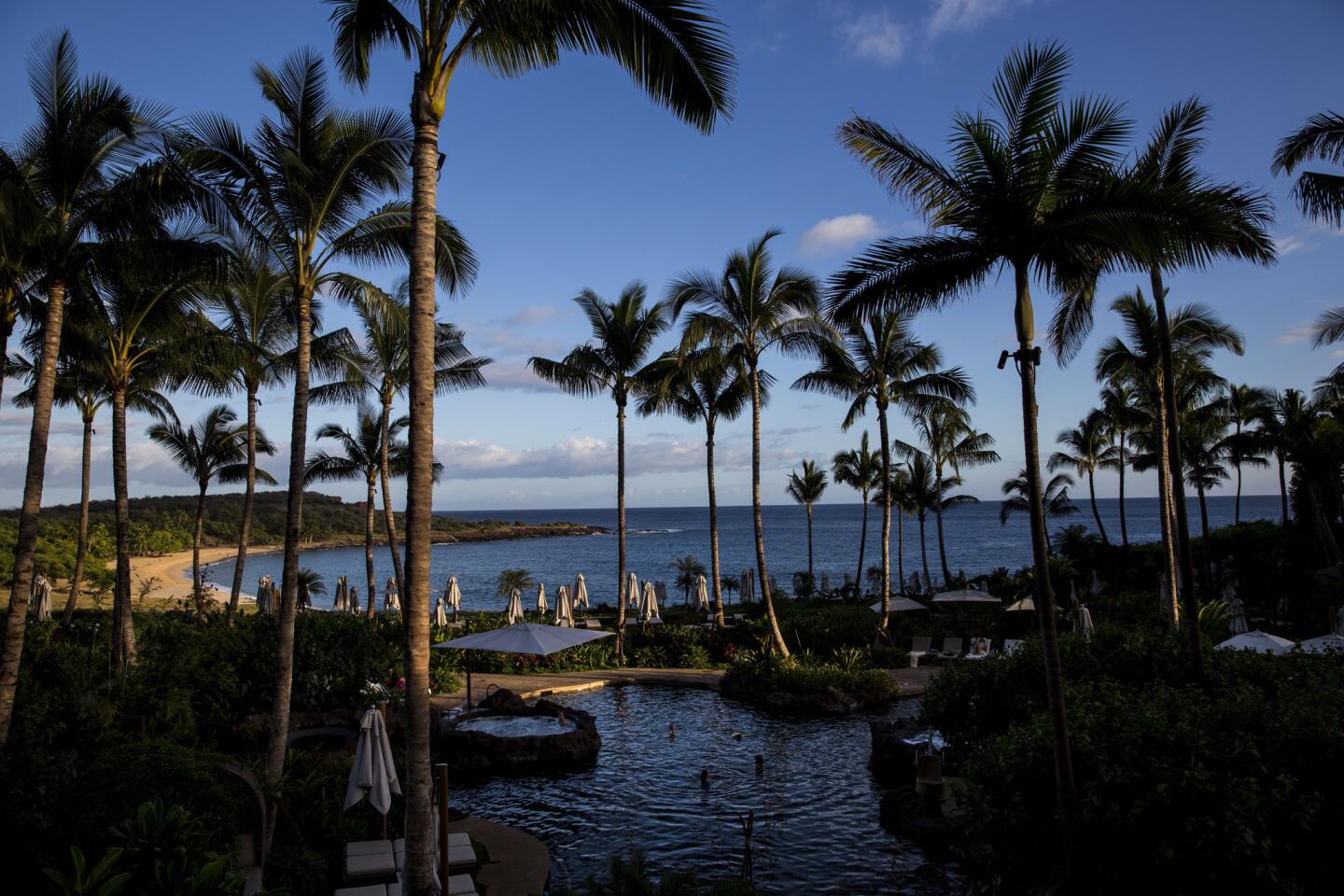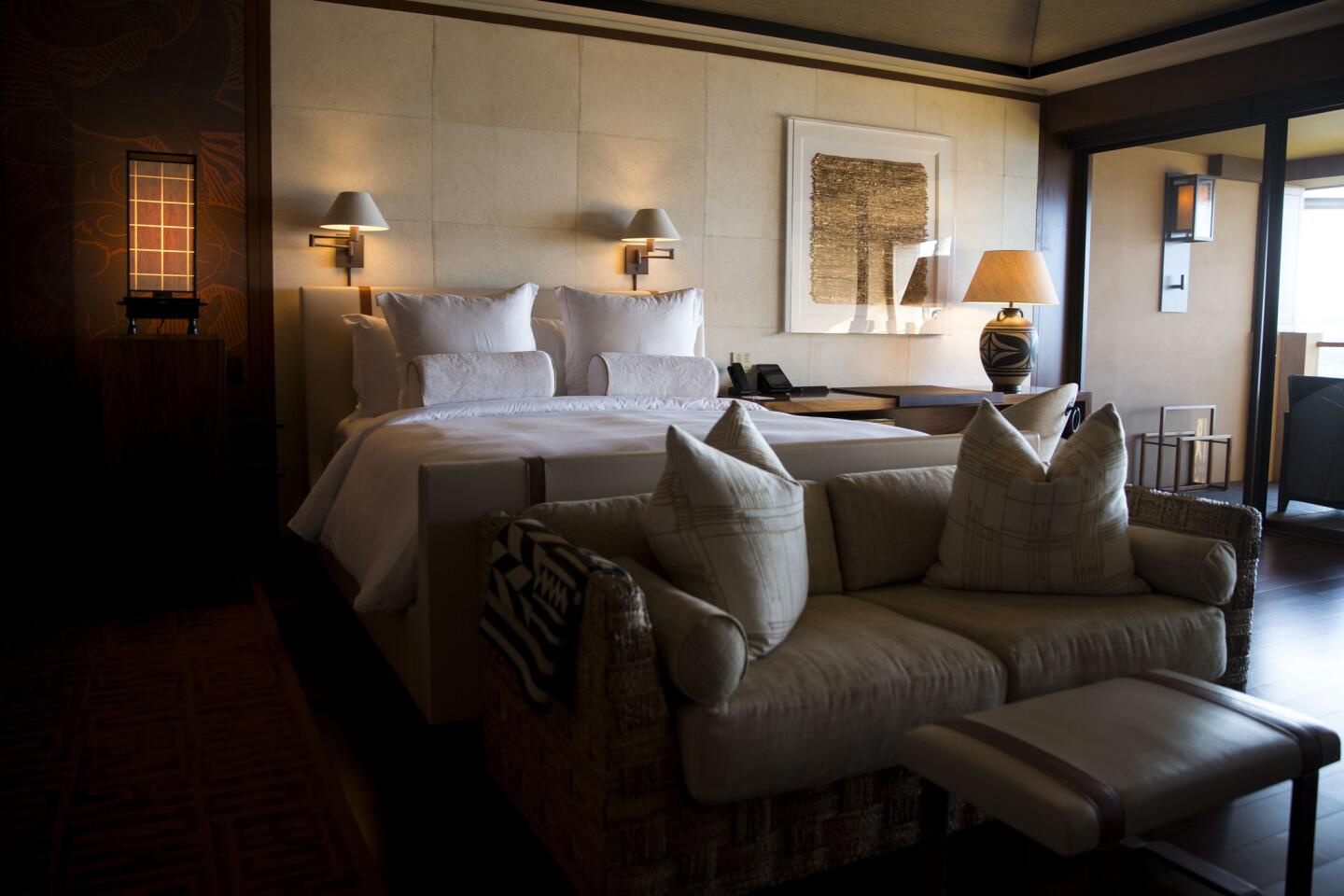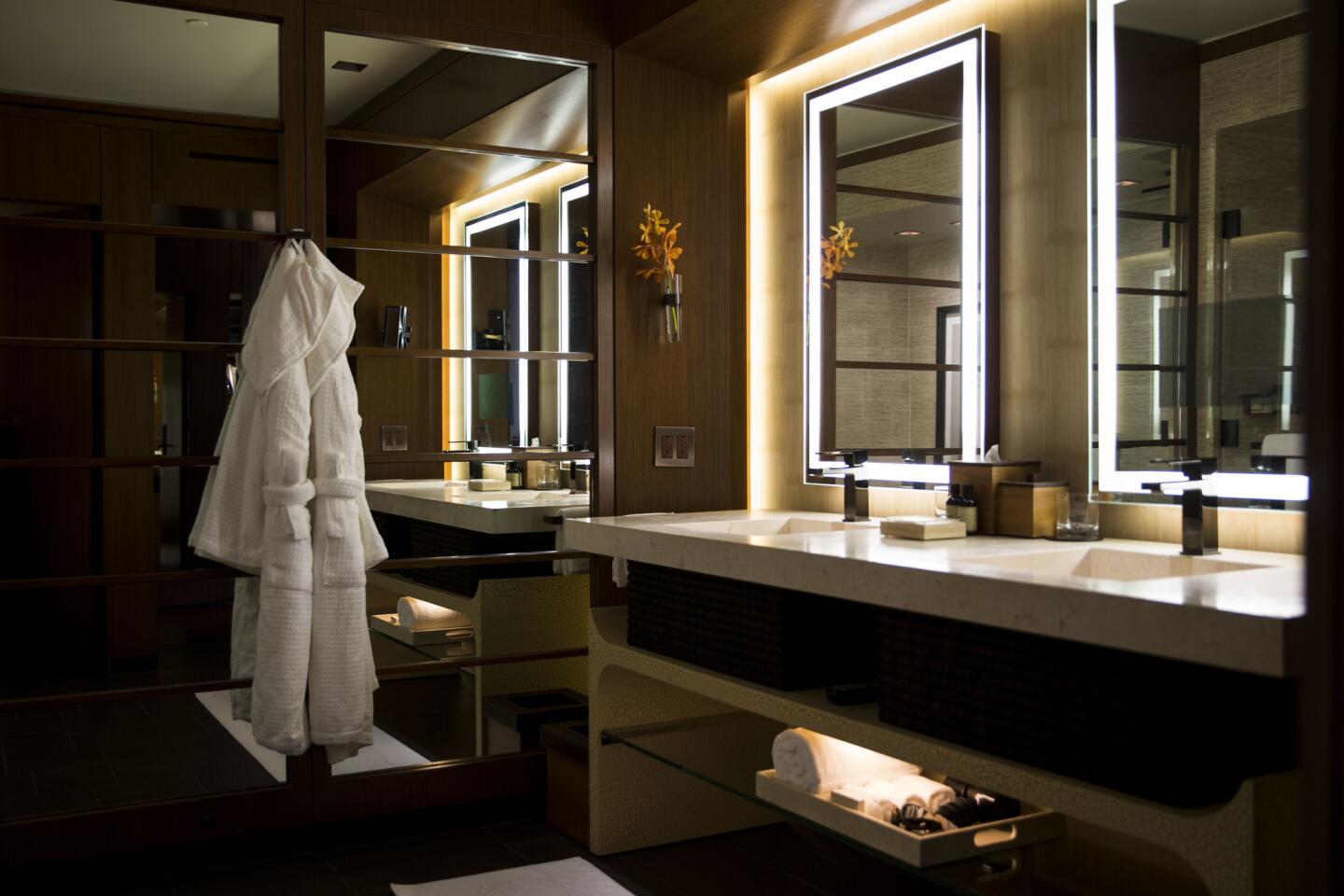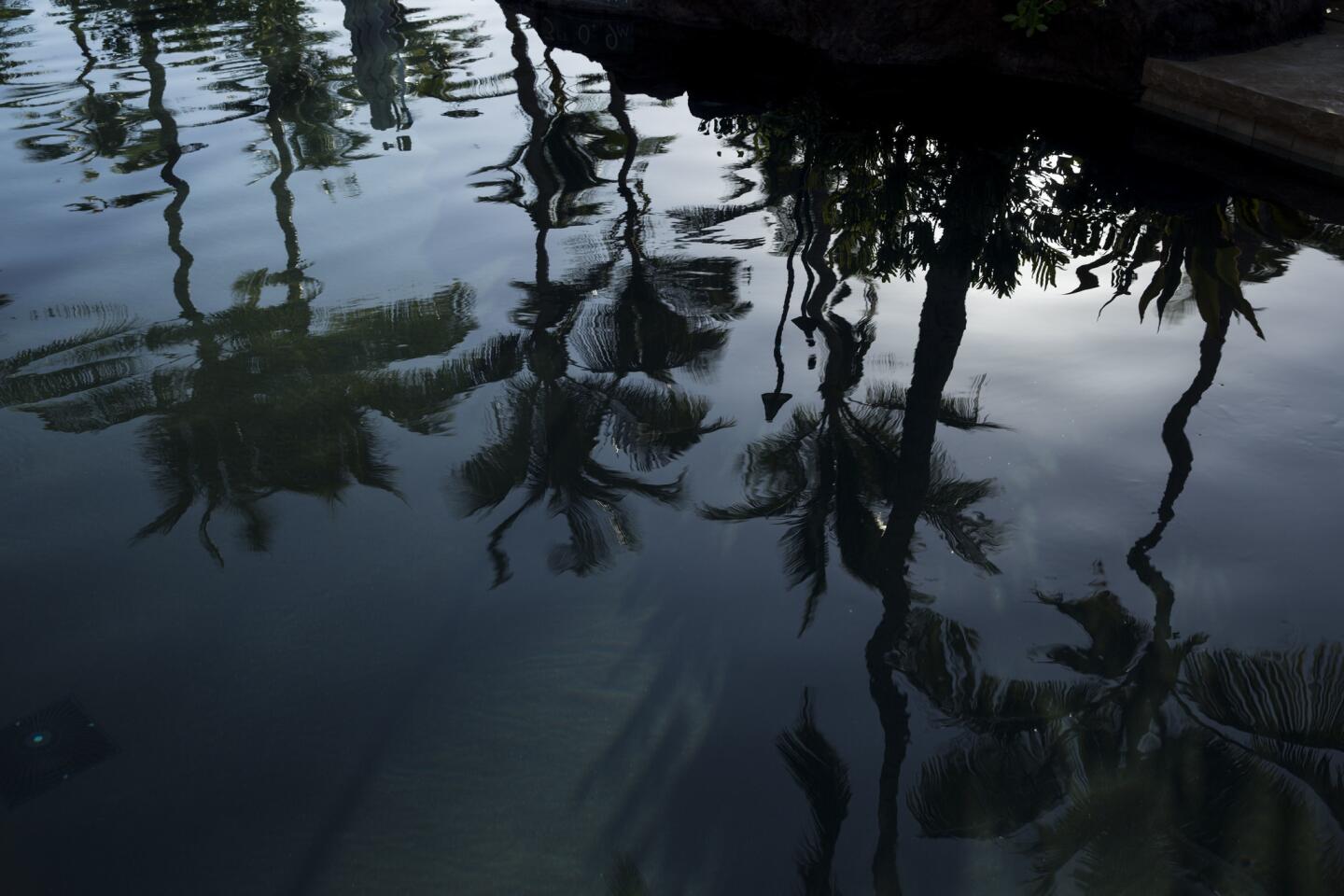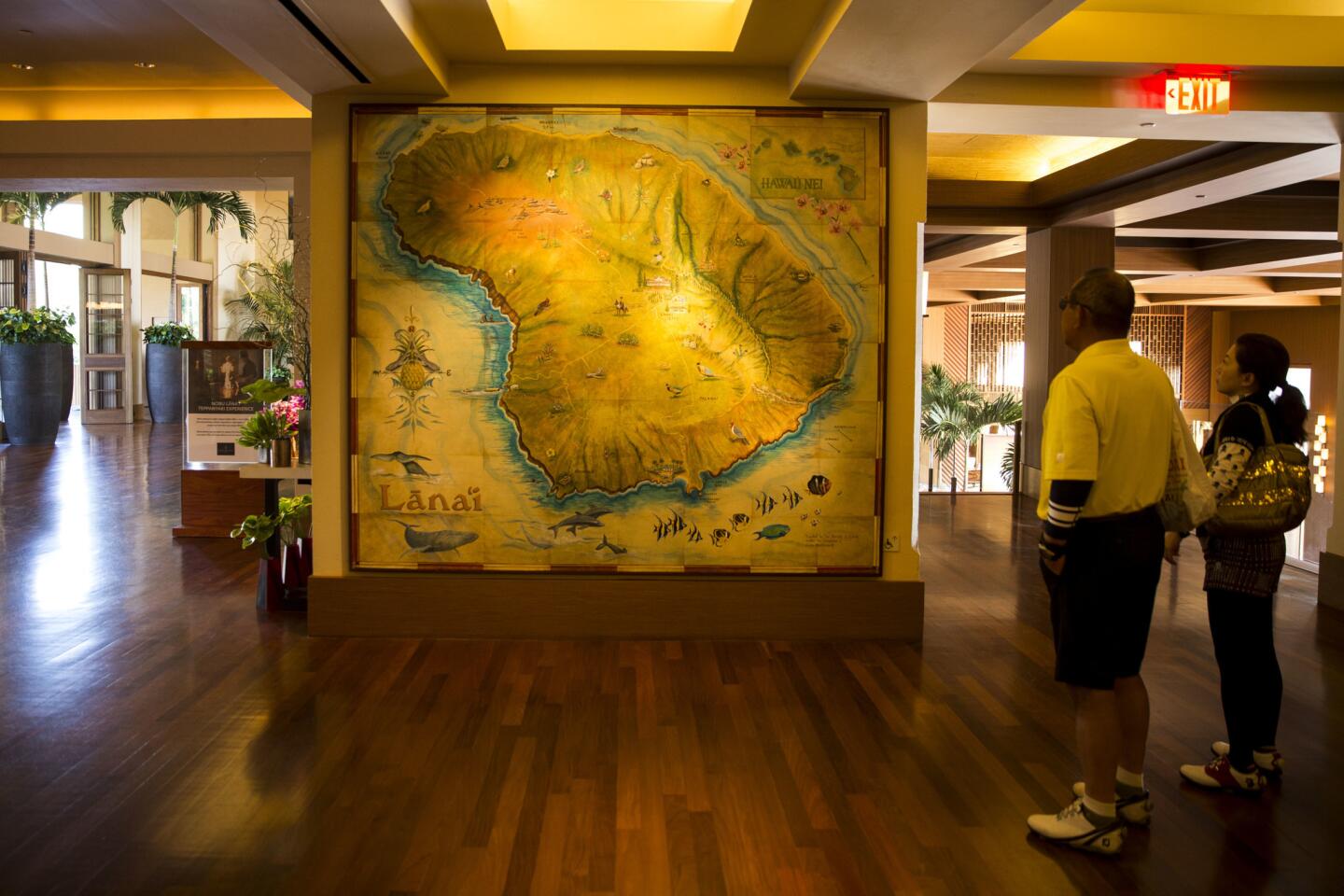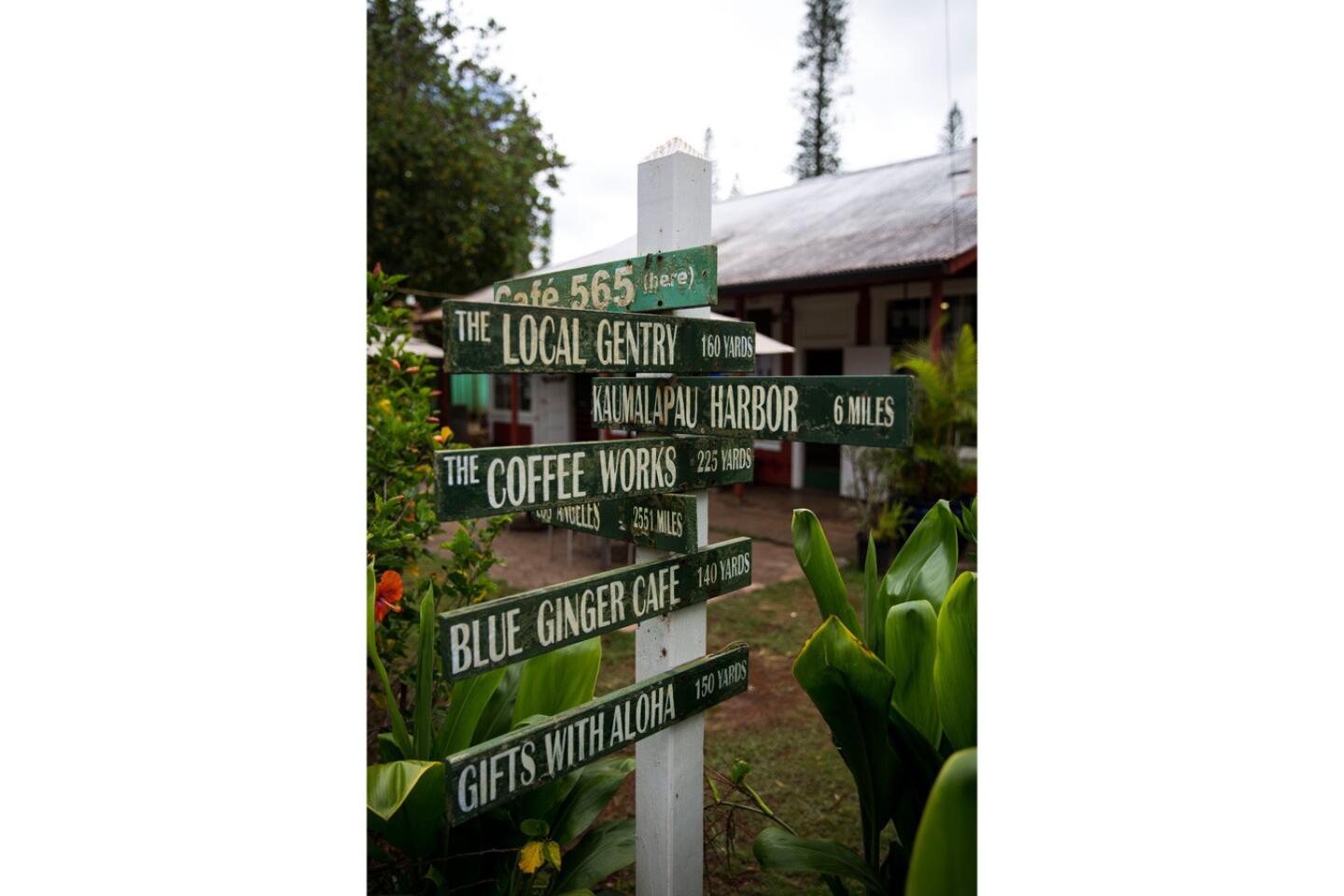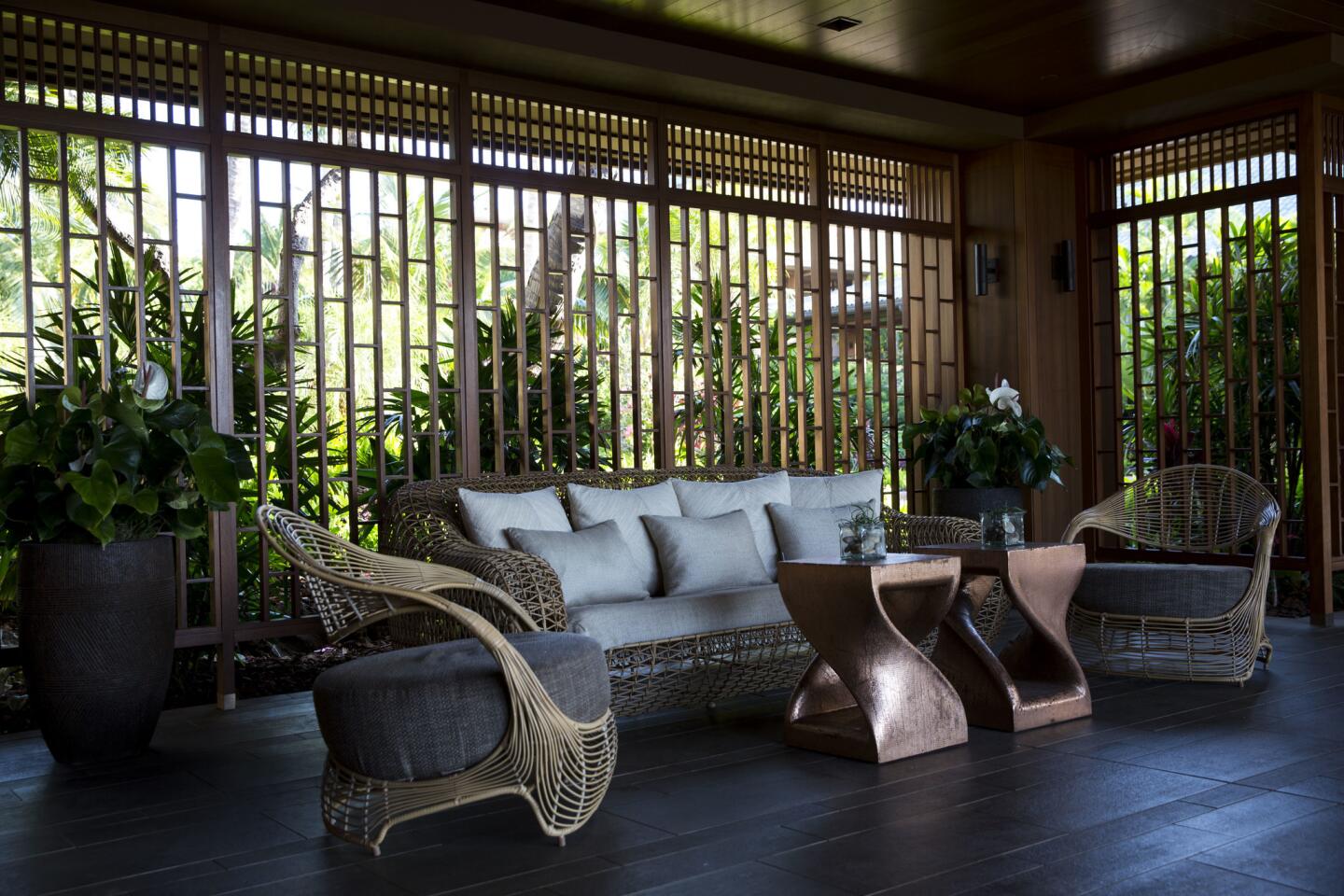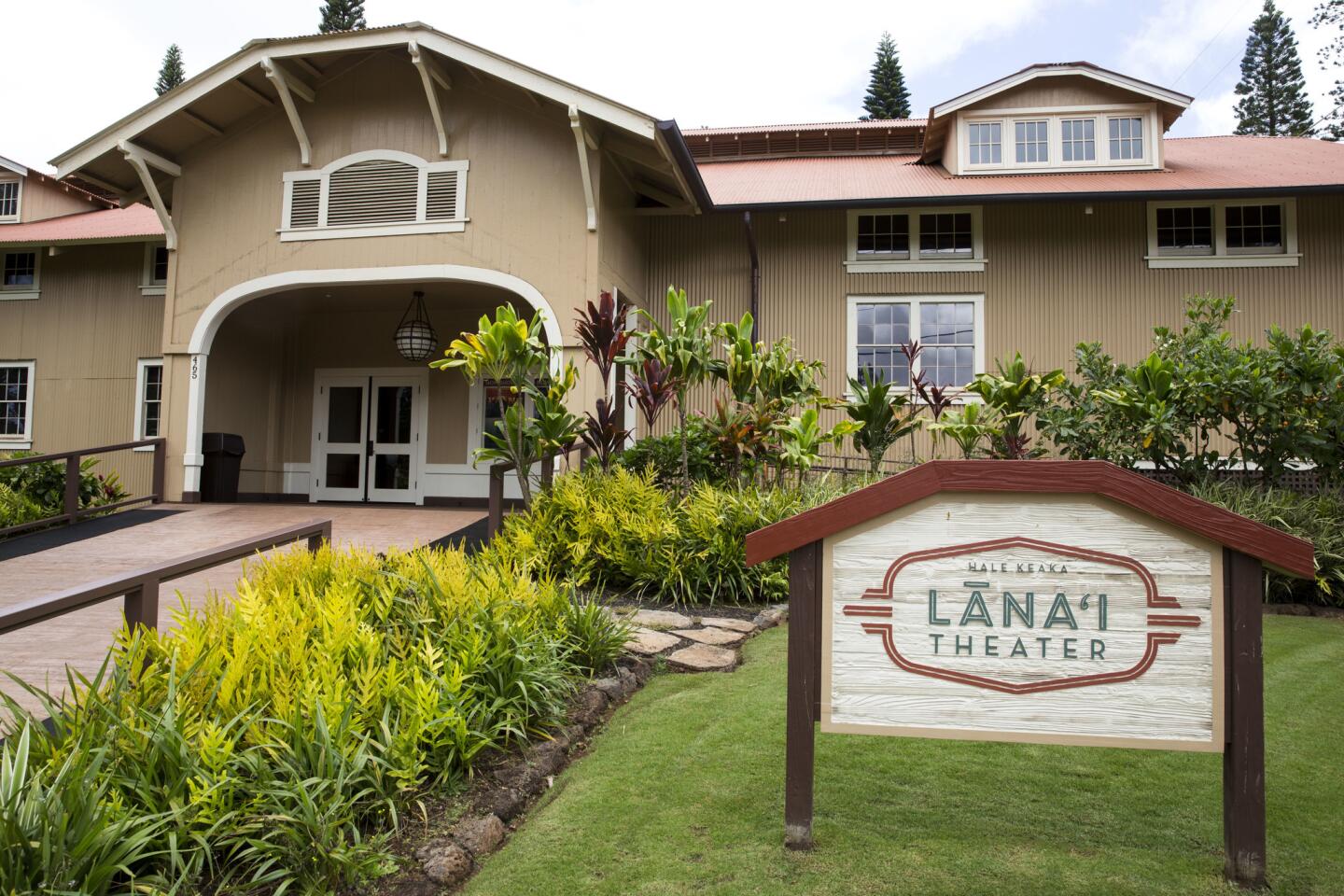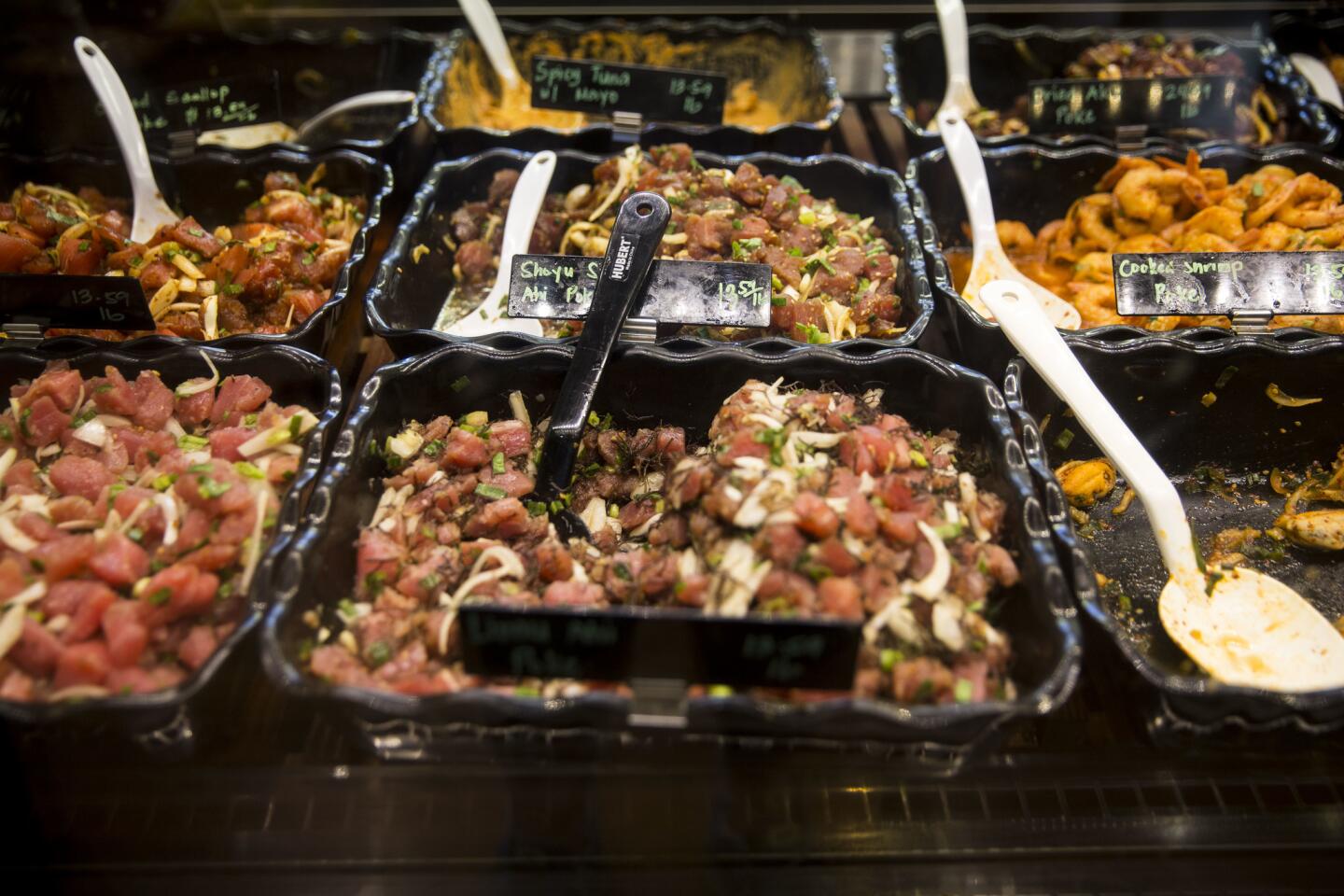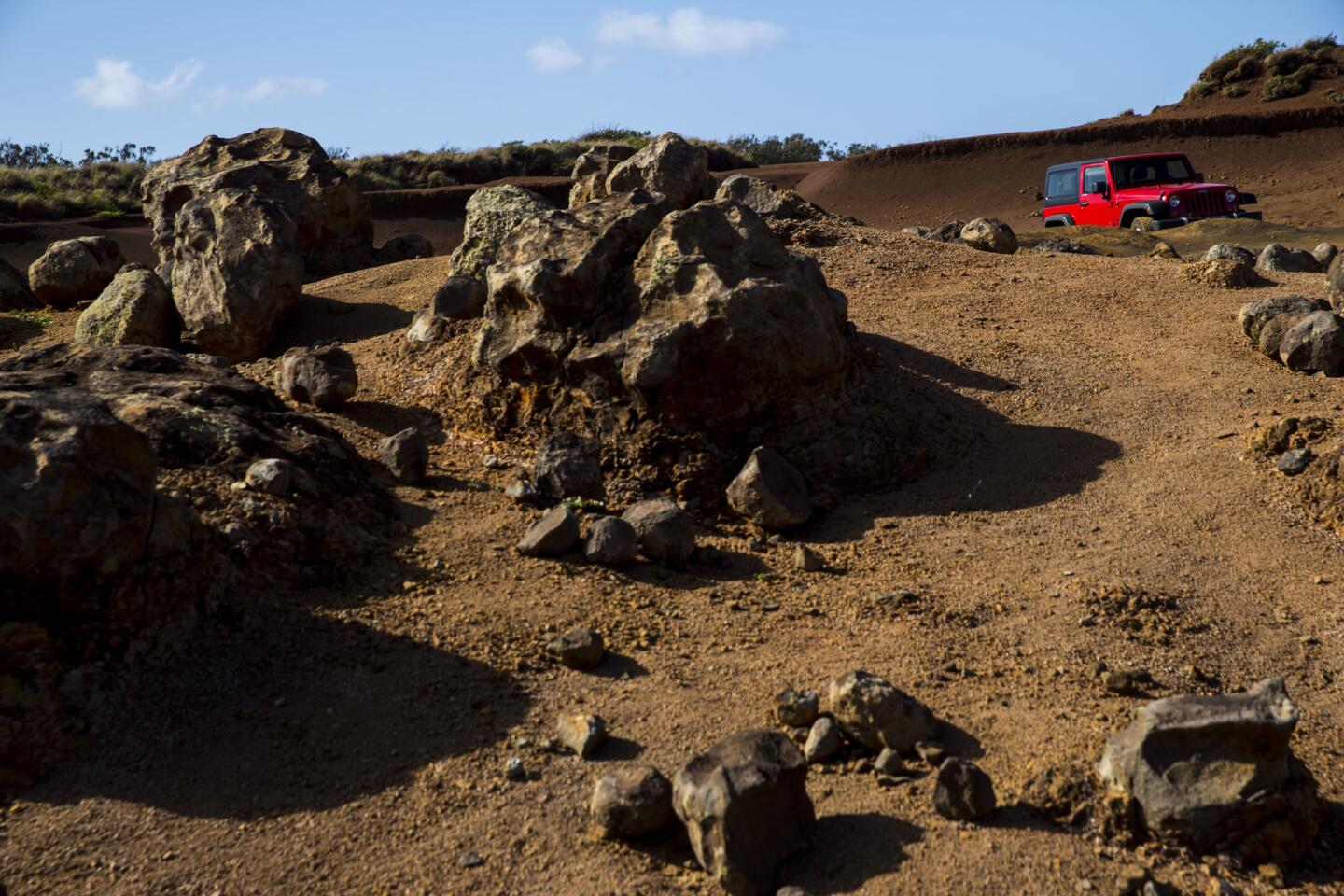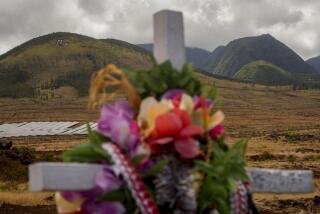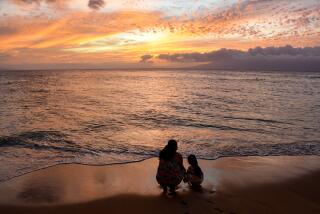If you’re looking for authentic Hawaii, away from neon lights and crowds, look to Lanai
- Share via
Reporting from Lanai City, Lanai — Graceful 80-foot-tall pine trees line the streets of tiny Lanai (Lah-na-ee) City. The trees, imported from the Cook Islands in the South Pacific, lend a lush green appearance.
Lanai, 13 miles wide and 18 miles long, is one of the smallest islands in the Hawaiian chain, with 3,100 residents and only 30 miles of paved road. For the most part, it’s covered with dry scrub brush.
“People arrive and think it’s totally barren,” said Alberta de Jetley, editor and publisher of Lanai Today, the island’s newspaper. “They probably think, ‘Oh my gosh, what have I gotten myself into?’ ” she said, laughing.
“But it doesn’t take them long to see beyond that.”
I’ve visited Lanai three times, most recently in February, and knew I wasn’t going to find Garden of Eden scenery. But tropical rain forests aren’t the only feature that commend an island.
Beaches, surf and marine life rate high. Add tranquillity and Lanai’s score rises sharply. It isn’t for everyone, but it’s heaven if you’re looking for a more authentically Hawaiian experience away from Waikiki’s neon lights and nearby Maui’s crowded coastline.
Another reason to visit Lanai has surfaced recently, thanks to island upgrades by billionaire landowner Larry Ellison, founder of the Silicon Valley giant Oracle and one of the richest men in the world.
Ellison bought 97% of the island for $300 million in 2012, turning it into a private playground and pumping millions into improvements.
One of his first projects was to revitalize Lanai’s flagship hotel, Four Seasons Resort Lanai (formerly Four Seasons at Manele Bay). The seaside resort emerged last year from a $450-million renovation that has turned it into a billionaire’s vision of paradise.
A deluxe makeover
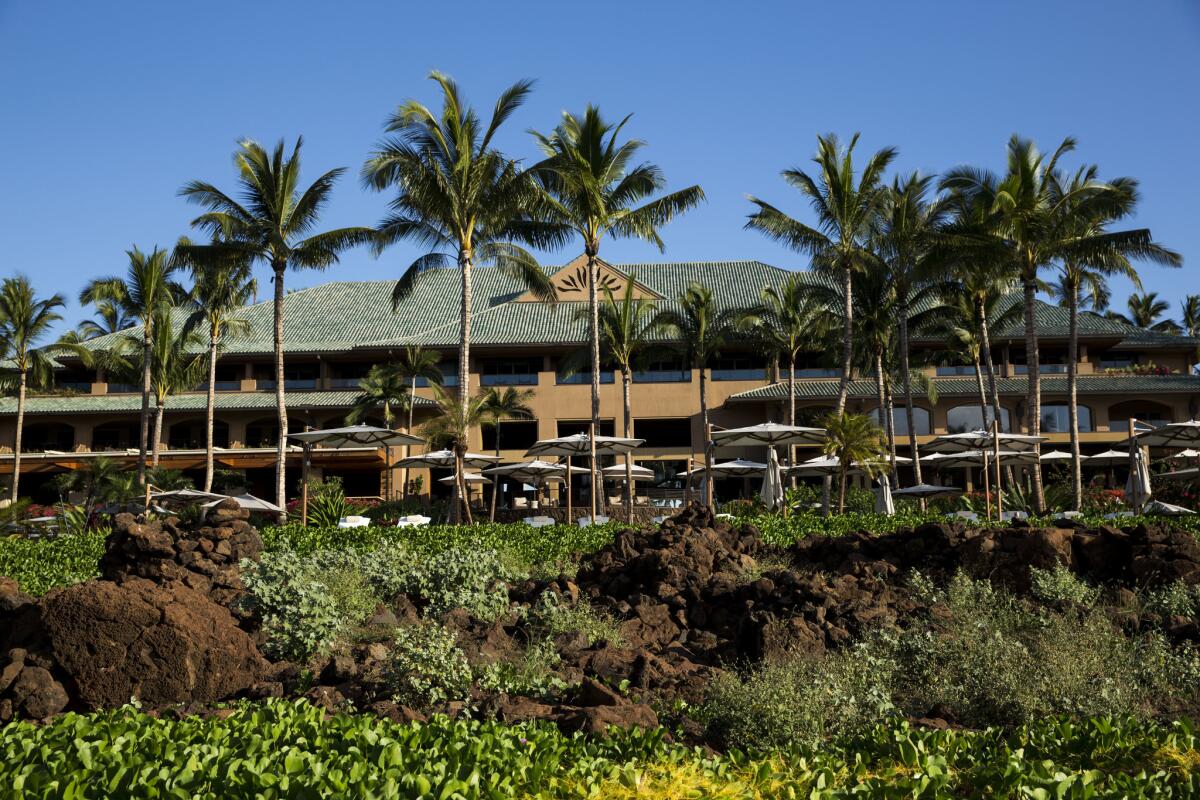
Paradise, indeed, I thought as I walked the grounds. The rest of Lanai might not look like Bali Hai, but Ellison’s landscapers and gardeners have worked wonders with the grounds of the resort, adding lavish tropical plants, grotto-style pools, waterfalls, Hawaiian flowers and ponds full of koi.
During my stay, I marveled each morning at the phalanx of gardeners tending the plants as they weave their way through the greenery .
The resort’s silhouette has changed too. Some structures were removed, opening up more ocean views. Rooms and baths were remodeled, 75-inch TVs hang on teak and zebra wood walls and an iPad Air makes it easy to call for room service.
In the bathroom, a computerized Toto electronic toilet awaits to warm your tush.
Another big change: The brightly colored Asian decor that formerly decorated the hotel is gone. In its place are rich woods and exquisite Polynesian-themed artwork in hallways, gardens and public areas.
With nightly rates that start at more than $1,000 and cap at $21,000, the 213-room hotel isn’t for everyone. But for those who can afford the tariff, it’s pure opulence: beach boys to clean your sunglasses and bring you sunscreen, chauffeured rides to the air strip in a Mercedes bus, and a hotel room or suite that’s so lovely you’ll feel as if you walked onto a movie set.
The super-luxe ambience — aimed at super-rich guests — serves a purpose, according to a company news release: It “will allow the resort to operate profitably without being reliant on large visitor numbers which the island does not have the infrastructure to support.”
Head for the outdoors
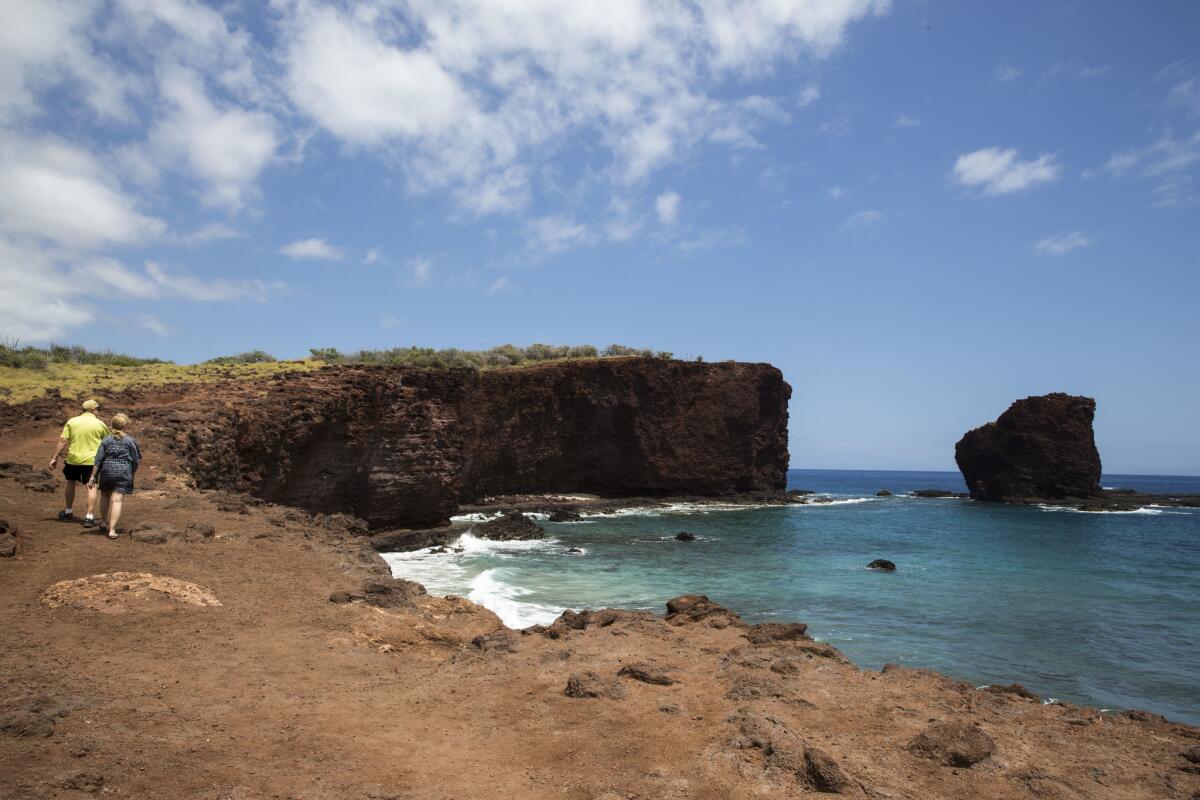
Those who can afford it will find plenty of activities to charge on their platinum cards. There are golf and tennis, a Hawaii-themed spa, plus two pools and water sports.
Snorkel in the bay just below the hotel, where a pod of spinner dolphins often frolics, or hike to Sweetheart Rock, an iconic 80-foot-tall red rock that juts from the sea. Along the way, you’ll see tide pools, volcanic cliffs and swirling, chaotic waters.
Another option: Hop on a 4x4 and explore the island’s beaches and mountains, where dusty lowlands give way to forested hilltops.
Here are lava-cliff overlooks, red dirt trails and secluded hideaways. You can rent a vehicle or take a guided tour, which is what I did.
Accompanying me were two girls who were staying at the resort with their parents: Sesi Kouyoumdjian, 8, and her sister Ani, 6.
They laughed as the vehicle hurtled over bumps in the road, watched solemnly as a huge antlered buck grazed in the distance, and cheered as a hawk soared overhead when we stopped at an overlook.
Did they enjoy the trip? “I want to go again,” said an obviously impressed Ani. Not Sesi. “I’d rather go back to the hotel and swim,” she said, frowning.
Luckily, this small chunk of Hawaii has something for almost everyone.
You don’t have to be a one-percenter to enjoy Lanai. With a little planning, you can explore the island on a budget.
The least expensive way to see it is on a one-day trip from nearby Maui, just nine miles across the sea. A ferry makes the hourlong crossing several times a day from Lahaina Harbor, Maui, to Manele Harbor, Lanai ($60 round-trip per person on Expeditions, [800] 695-2624).
Once you’re on Lanai, take a $10 shuttle bus ride into Lanai City from the harbor for lunch and shopping. The town is small but colorful and fun, and you’ll meet friendly locals at the cafes and markets.
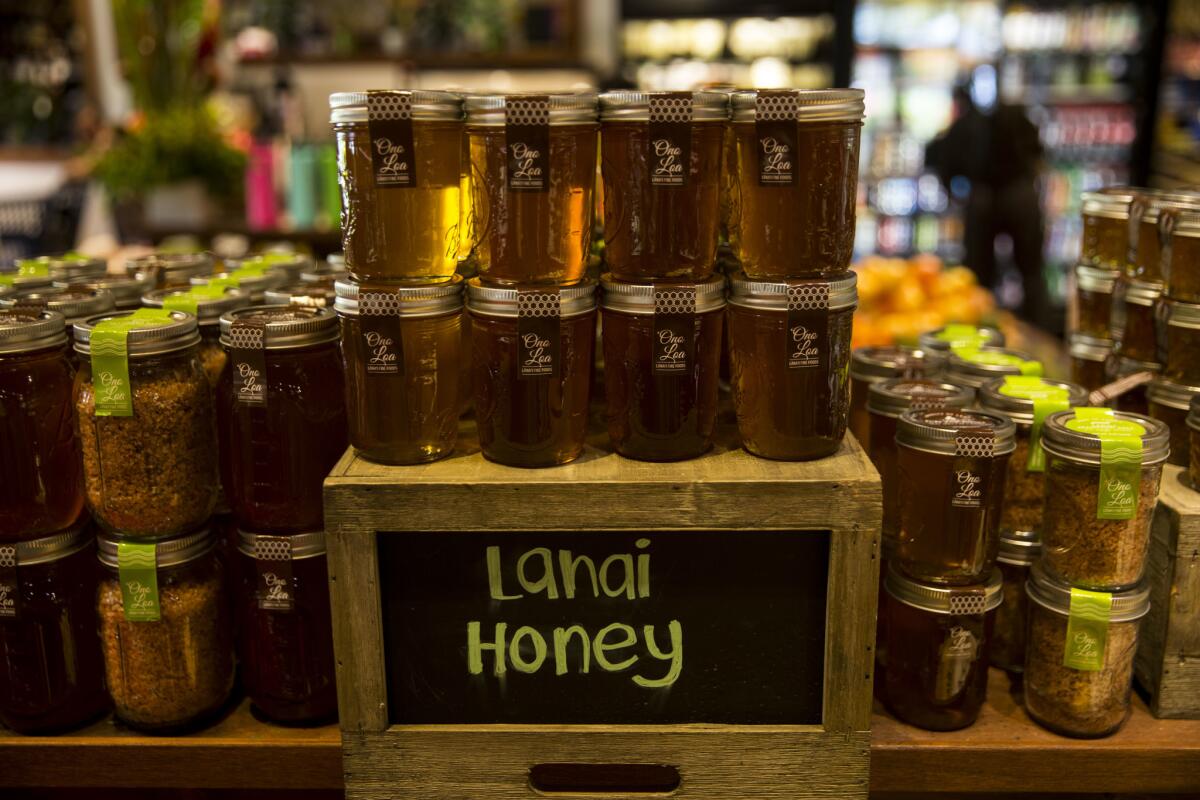
Then pop back on the shuttle to return to Manele Harbor, where you can enjoy Hulopoe Beach Park, one of the most scenic spots on Lanai and the island’s best swimming beach.
While there, take a hike to Sweetheart Rock, named for a Hawaiian legend that tells of two star-crossed lovers. The picturesque landmark overlooks the sea.
Expeditions, the ferry company, also offers guided tours and Jeep rentals that start at $180 person for a half-day tour.
You could also take a guided tour from Maui.
My first visit to Lanai was on such a tour: It was ridiculously expensive, the boat was small and wallowed in the waves crossing the sea to Lanai and my guided tour took me only to a designated quarter-acre picnic area. I saw nothing of the island.
My advice: Be your own guide. The ferry and shuttle make it easy.
If you want to spend the night, there are a few choices other than the $1,000-plus rooms at Four Seasons Resort Lanai.
There’s one other hotel on the island, Hotel Lanai, with 11 tidy rooms and a restaurant. Its rates start at $180 per night.
There are rentals and small B&Bs, which offer a way to get to know the locals. Rentals are listed on several services, including Airbnb, VRBO and HomeAway.
Or try to get a $15-per-person campsite at Hulopoe Beach Park, the island’s only designated campground. Details are available on the community website. Click on non-resident camping. You’ll need to bring your own gear.
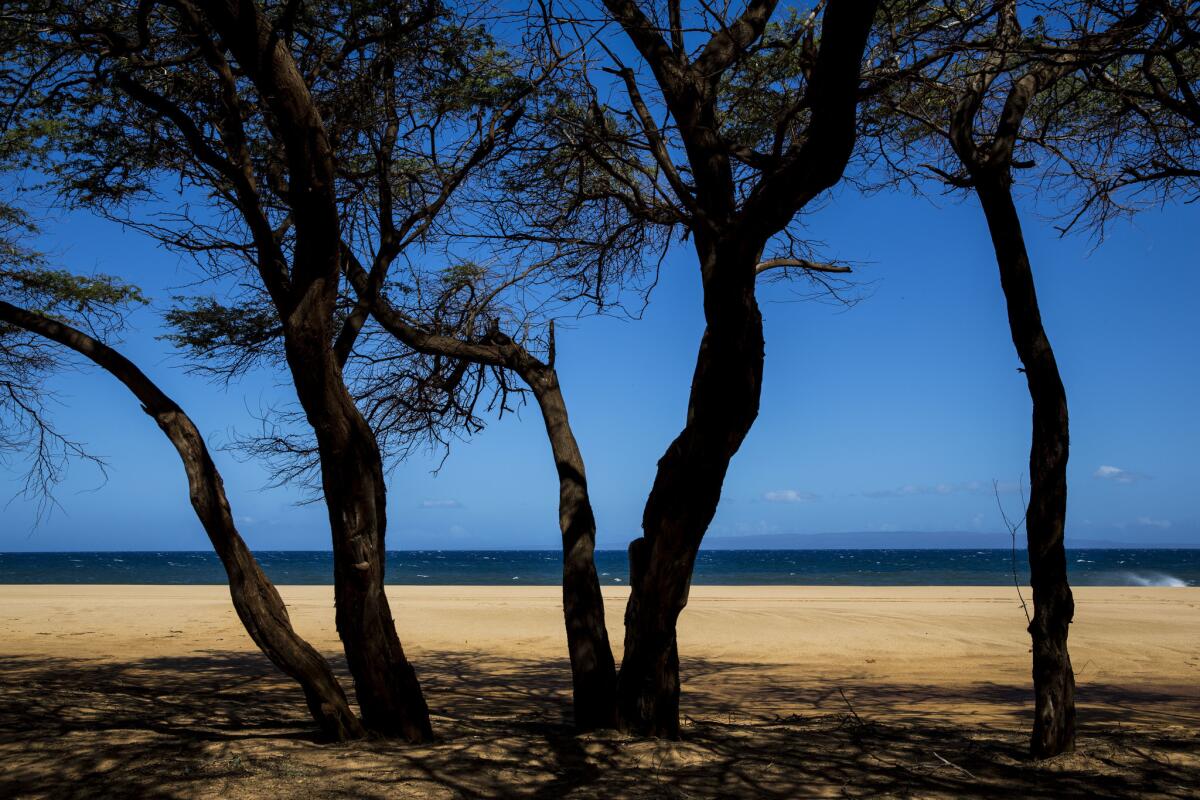
History hasn’t always been kind to Lanai Island.
Legend has it that Polynesian settlers were reluctant to establish homes here because it was said to harbor evil spirits.
In the 18th century, King Kamehameha I, known as the warrior king, killed most of its inhabitants with weapons he received from European visitors.
Then in 1922, James Dole arrived and bought the entire island for $1.1 million, building plantations, importing workers and growing pineapples.
At one time, Pineapple Island, as it was nicknamed, produced 75% of the world’s pineapples.
But the booming economy fell apart when Dole Corp. moved the operation to other parts of the world where the fruit could be grown less expensively.
Besides the job loss, Lanai was left dotted with irrigation tubing and small black plastic remnants of material used to keep weeds out and moisture in.
You can still see these bits floating through the air and lying on the red dirt ground anytime you hike or drive through the former pineapple fields, which covered most of the island’s flatlands.
Lanai residents are hopeful that Larry Ellison’s reinvention of Lanai will have happier results. His plan: to transform the 140-square-mile island into a sustainable tourist destination, thus creating security for its 3,100 residents.
“So far, so good,” I was told -- in those exact words -- by everyone I encountered when I asked residents about his efforts in town, at the community beach and at the renovated Four Seasons Resort Lanai.
When Ellison, founder of tech giant Oracle, purchased the island in 2012, he acquired two Four Seasons resorts. He closed both, reopening the flagship Resort Lanai last year after extensive remodeling.
During its eight-month closure, he kept everyone on the payroll, finding other jobs for them.
He has helped the community in other ways too, reopening the town’s movie theater, repainting homes and businesses and adding football and soccer fields at the high school.
Eventually, he plans to reopen the other hotel, the Lodge at Koele, as a wellness facility, locals say.
“I’d give his company an A+,” said Alberta de Jetley, editor and publisher of Lanai Today, the island’s newspaper. “They’ve done a lot to extend the island’s hospitality to visitors.
“We need that. People don’t realize that we run shops and restaurants and other businesses dependent on tourism. The only way we can make the island sustainable is to improve tourism.”
If you go
THE BEST WAY TO LANAI
From LAX, United, Delta, Hawaiian, American and Virgin American offer connecting service (change of planes) to Lanai. Restricted round-trip fares from $790, including taxes and fees.
By boat from Maui: Expeditions, (800) 695-2624. Expeditions ferries make the nine-mile crossing several times a day from Lahaina Harbor, Maui, to Manele Harbor, Lanai. $60 round-trip per person.
WHERE TO STAY
Four Seasons Resort Lanai, 1 Manele Bay Road, Lanai City; (808) 565-2000 or (800) 321-4666. Recently renovated luxury resort on a hillside overlooking Hulopoe Bay. Nine bars and restaurants, plus a Jack Nicklaus Golf Course, tennis facility, adults-only and family pools, spa. Doubles from $1,025 per night.
Hotel Lanai, 828 Lanai Ave., Lanai City; (808) 565-7211. This simple, 11-room hotel is in the center of Lanai village. Built in 1923 by James Dole as housing for Dole Plantation executives, it was the island’s original hotel. It is well maintained, charming and has a restaurant and small bar. Doubles from $180 per night.
WHERE TO EAT
Nobu Lanai, 1 Manele Bay Road, Lanai City; (808) 565-2000 or (800) 321-4666i. Celebrity chef Nobu Matsuhisa, with more than 20 Nobu restaurants worldwide, now has an outpost at the Four Seasons Lanai. The dining room, which has panoramic views, features Japanese fusion cuisine. The menu is pricey, with individual dishes from $8 for edamame to $65 for lobster tempura.
Lanai City Bar & Grille, 828 Lanai Ave., Lanai City; (808) 565-7211. Fresh fish is a constant on the menu of this recently remodeled bar and dining room inside the Hotel Lanai. The bill of fare changes daily depending on the availability of ingredients. Entrees from $18.
Blue Ginger Cafe, 409 7th St., Lanai City; (808) 565-6363. This low-key cafe is a favorite with locals and doubles as a bakery, where you can pick up freshly baked bread, cookies or other sweets. The mixed plate lunch is $19, but the portions are large enough to share.
TO LEARN MORE
@latimestravel
More to Read
Sign up for The Wild
We’ll help you find the best places to hike, bike and run, as well as the perfect silent spots for meditation and yoga.
You may occasionally receive promotional content from the Los Angeles Times.
